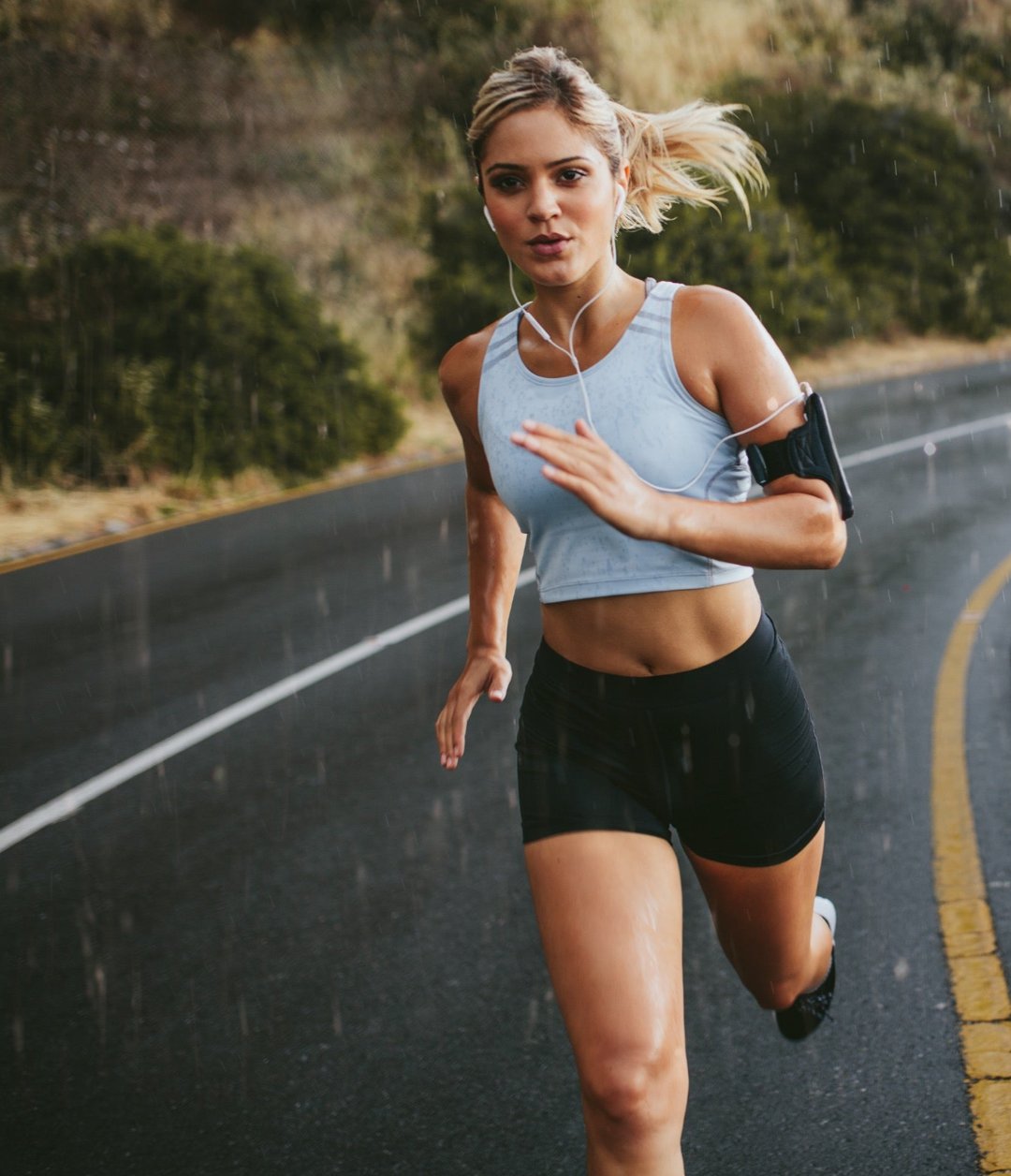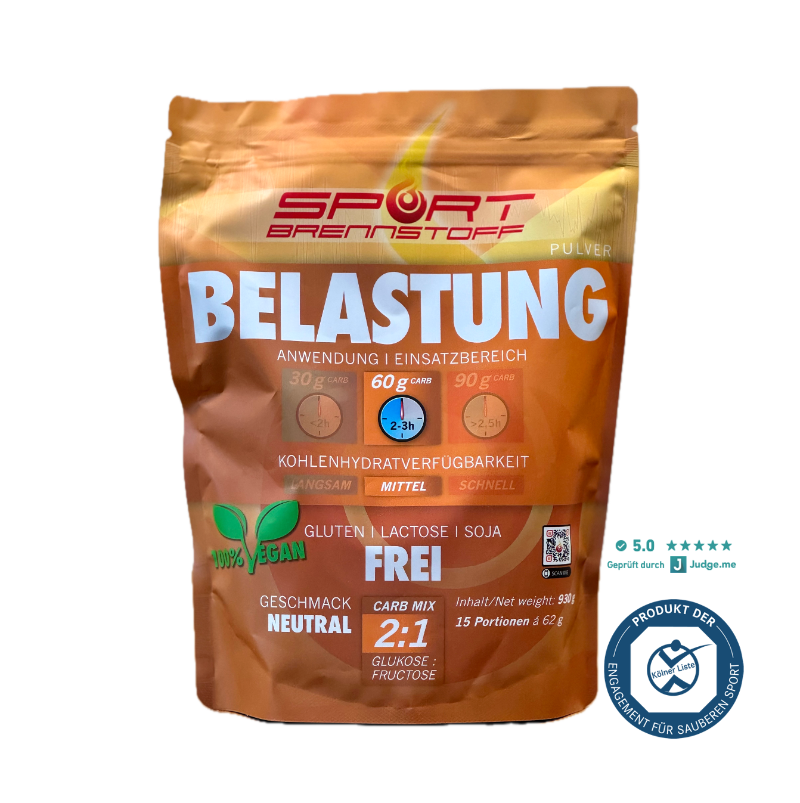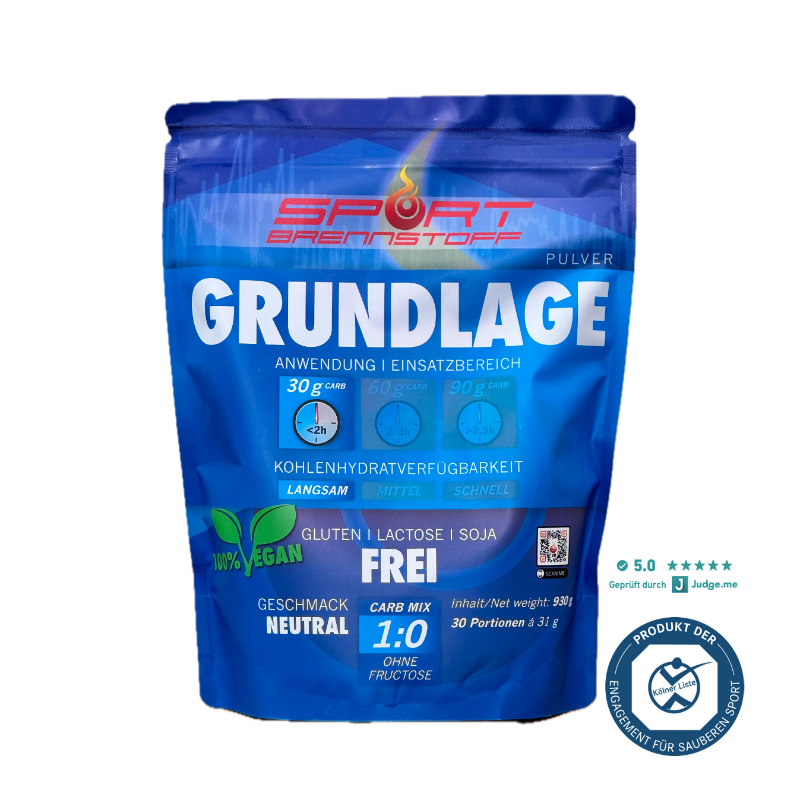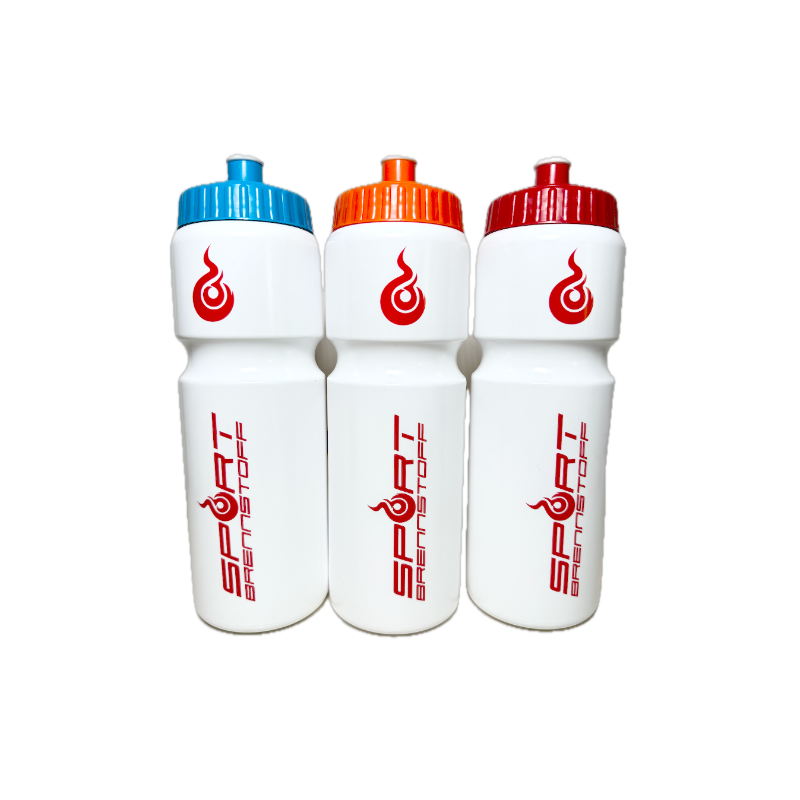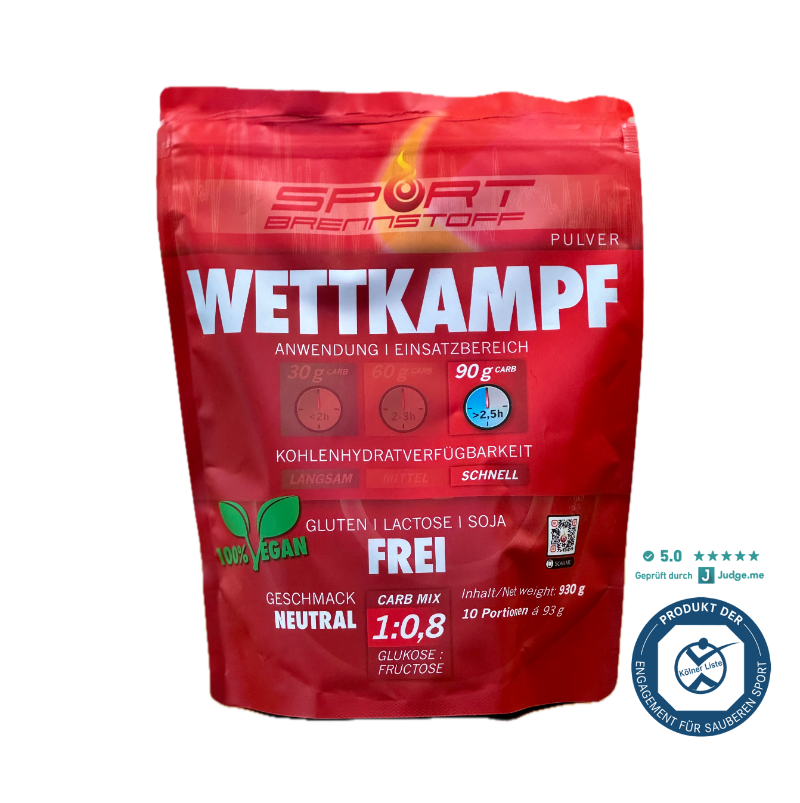Specific Sports Nutrition in Running
Specific Sports Nutrition in Running
Sports nutrition in running has a few special features that are tailored to the specific requirements of this sport. This is mainly due to the fact that the body is particularly stressed with every step when running due to the movement and impact. The gastrointestinal tract is particularly stressed by these shocks and is therefore particularly sensitive to any nutrition required during exercise. Here are the most important aspects of nutrition before, during and after exercise:
Before exercise
| 🧆 |
High-carbohydrate diet: Runners should replenish their glycogen stores before training or competition. A high-carbohydrate diet with complex carbohydrates such as whole grains, green vegetables and sweet potatoes is recommended. DGE |
| 🥪 |
Light meals: It is advisable to eat a light, easily digestible meal 2-3 hours before running, even during training, to avoid digestive problems. Therefore, correct planning of the running session is very important. Choose easily digestible carbohydrates, eg white bread with honey. |
| 🍼 |
Hydration: 20 to 40 minutes before you start swimming, you should drink 400 to 600 ml of liquid. Again, a carbohydrate-rich, isotonic drink is best. |
| 🥣 |
In the morning before a long run, choose a mix of long- and short-chain carbohydrates. |
It is important to eat the light meal before the race/training session really early. This ensures that it has already been digested and that there are no leftover food particles in the stomach or small intestine, so that the energy supply during exercise is not impaired.
During exercise
| 🍼 |
Regular fluid intake after about 45 minutes. For longer sessions, however, you should drink enough fluids from the start of the run to avoid an energy deficit. |
| 🧂 |
Electrolytes: During long training sessions or competitions, the intake of electrolytes is important. It is recommended to consume 200-500 mg of sodium per 750 ml of water. |
| 🍞 |
Carbohydrates: During exercise lasting more than 45 minutes, carbohydrates should be consumed to maintain energy reserves. Consume approximately 60g to 90g of carbohydrates per hour. Bars are not recommended. |
When taking gel during a race or training, make sure that you drink enough liquid (even during training!). We recommend taking a supply approximately every 20 minutes.
After exercise
| 🍞 |
Fast carbohydrate intake: Glycogen storage in the muscles is most effective in the first two hours after swimming. A carbohydrate-rich meal (approx. 400-500 kcal, 60-70% carbohydrate content) should be consumed as soon as possible. Carbohydrate:protein ratio of 3:1. |
| 🍳 |
Protein intake: 10-20 grams of protein should be consumed immediately after training or competition to support muscle repair and immune function. The guideline is approximately 0.2g to 0.4g of protein per kg of body weight. |
| 🍼 |
Rehydration: Fluid loss should be compensated. Sports drinks or fruit juice spritzers in a ratio of 2:1 or 1:1 are recommended. DGE |
| 🧂 |
Electrolyte balance: Using drinks containing electrolytes promotes optimal rehydration of the muscles. |
The closer the protein and carbohydrate intake is to the end of a workout or competition/training, the better the effect. The open window effect can be reduced by just taking in protein and the glycogen stores fill up much faster than if they are taken later.
By following these nutritional strategies, runners can optimize their performance and speed up recovery. It is important that each athlete considers their individual needs and adjusts their diet accordingly.


